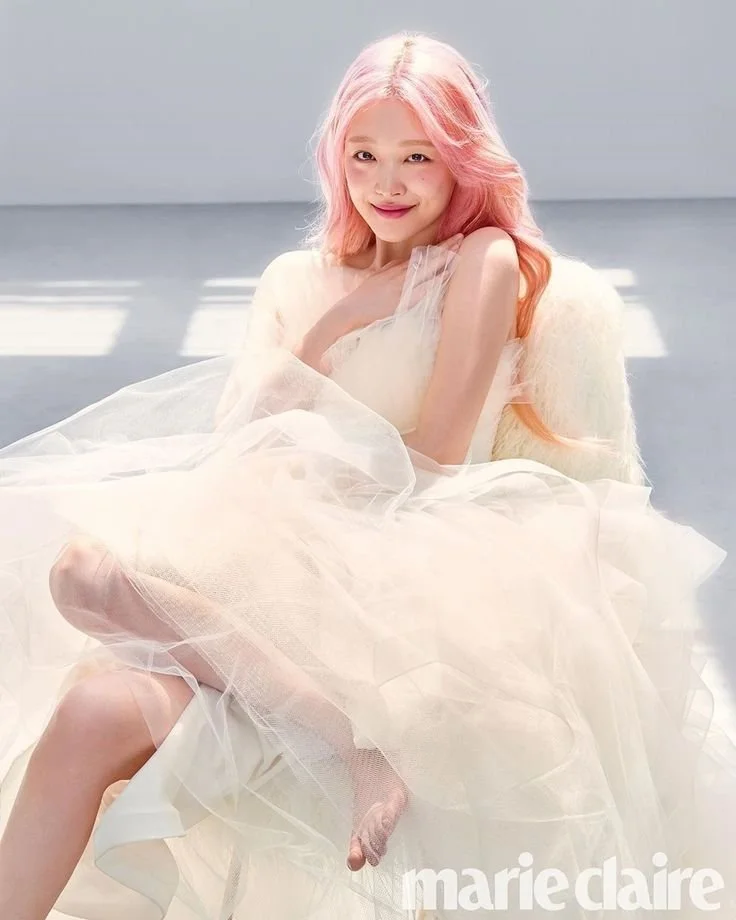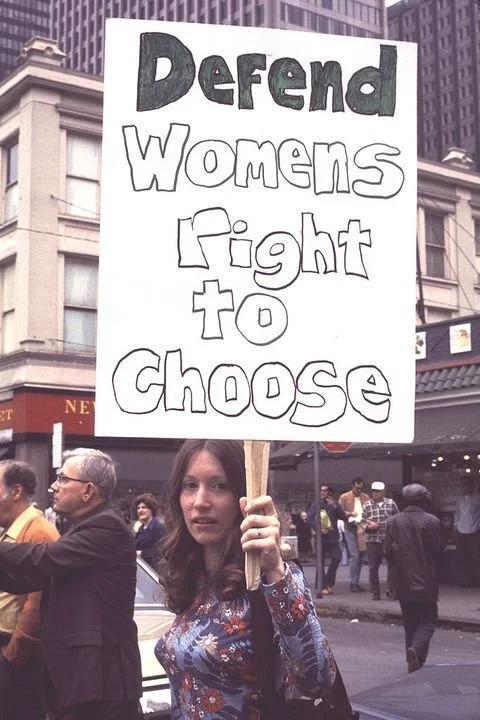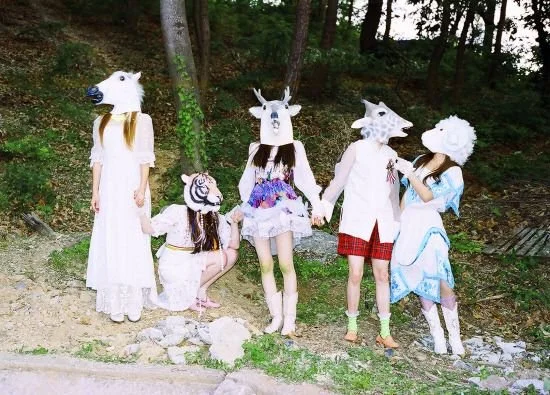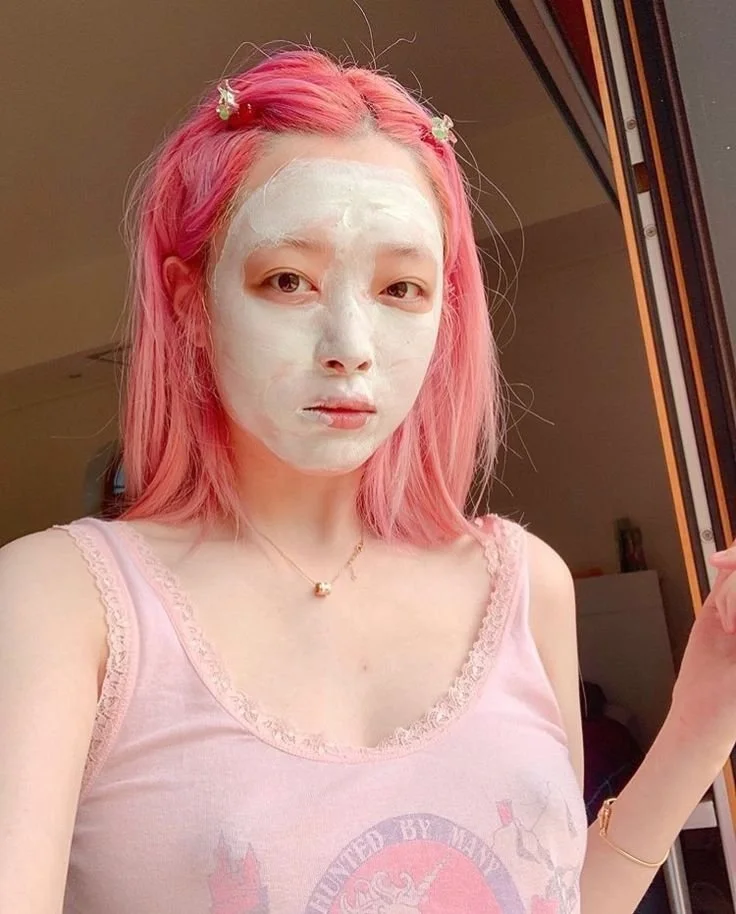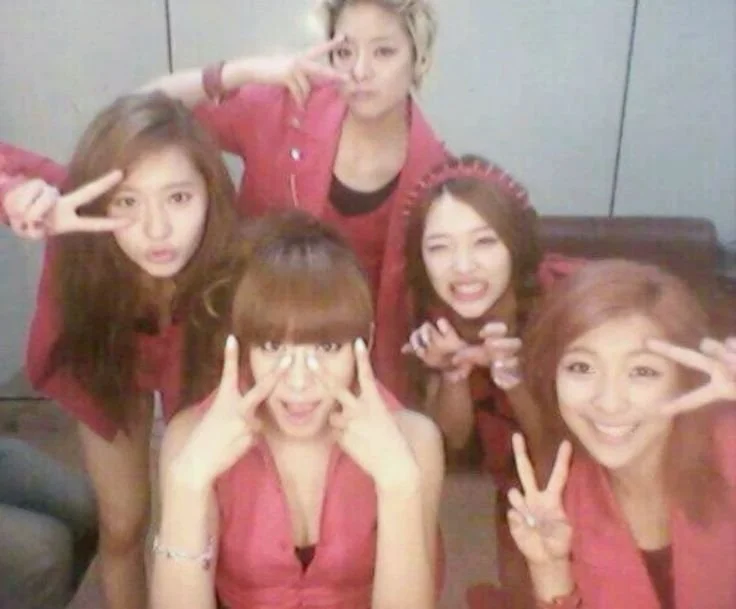Peaches and Goblins: Choi Sulli and the Feminist movement
“A man does something, it’s strategic. A woman does the same thing, it’s calculated. A man is allowed to react. A woman can only overreact.” - Taylor Swift, 2019
This past summer, I was sitting in my car, waiting for the appropriate time to clock into work, when I saw the news that Moon Taeil (formerly of NCT127) was being dropped from SM Entertainment because he was under investigation for sex crimes. I immediately thought: I could not believe someone could do something like this and then post selfies on Instagram. This past month, it was revealed that he wouldn’t be serving any time for the charges, and my immediate thought was: I cannot believe that people aren’t angrier.
I am constantly reminded when a case like this becomes public that the general public was angrier at Sulli (formerly of f(x), also under SM Entertainment) for wearing a shirt that said “girls supporting girls” on it than towards the men who committed serious crimes. They called her lazy and problematic, a woman who had too many opinions that were too loud. Still, I saw the same people going to great lengths to defend men like Moon Taeil and Lee Seungri (primary operator of the Burning Sun).
As a Korean-American who grew up in a mixed family, I see echoes of my struggles in Sulli. I was raised in a place that was predominantly white, and then later, in middle school, I moved to a place that was even more predominantly white than the last. I went through the prolonged, canon phase of being embarrassed to be Asian and trying to fit in with my classmates. I have always struggled with the double bind of my cultural surroundings. What does it mean to be a woman? But even deeper than that, what does it mean to be an Asian woman? What does it mean to be a Korean woman living in America? Sulli’s experience in the entertainment industry reflects what it means to be the odd one out, magnified by the entire world watching and feeling they have the right to critique you.
For the women of South Korea, openly being a feminist is quite dangerous. Korean feminism is extreme and radical, especially in digital spaces, a result of the frustration many women feel with the lack of change in their society. As we watch the world revert to conservative fascism, I ask myself if my mother, grandmother, and all the women before me, all of whom lived in Korean society, felt the same anger at the blatant way women are treated as products without opinion, while men have priority.
“I thought we needed more women to speak up. Women can be angry and inappropriate too” - Sulli, Persona: Sulli
Choi Sulli did not have many memories of her father. Still, she remembered something vividly: her father’s colleague bought her an expensive Barbie playset, and she was so excited to receive something special. She ended up ripping the head, arms, and legs off the Barbie doll. She even scribbled on it in red marker. Her mother never bought her any dolls after that. Maybe she knew all along what it meant to be an angry girl, an angry woman.
Choi Jinri, better known by her stage name, Sulli, was recruited to the entertainment industry as a child actress by SM Entertainment. She later debuted in girl group f(x) alongside four other members. She left the group in 2015 to pursue acting, but I imagine this was an act of selflessness so she ‘wouldn’t bring down the group.’ However, many fans turned on her and accused her of ruining the group's success. Many of her views reflected feminist ideals. People who thought, ‘Women shouldn’t do this, women should talk quieter and not have strong opinions, women shouldn’t wear that,’ that was the opposite of who she was. She expressed that it ‘was a beautiful day’ when S. Korea declared abortion was unconstitutional; she went on variety shows and openly talked about being a feminist, and she openly talked about the stigmatization of mental health.
When Sulli was a (k-pop) idol, she didn’t know her opinions. She didn’t even know if giving voice to her fundamental beliefs was possible. As a woman in the entertainment industry, “They’re in front of the camera, they’re [supposed] to act cute and pretty, but men can just [be] show them being men,” says Alex Kang, an international student who grew up in Korea, who can speak on the way he views Korean society from a male’s point of view.
From what I’ve experienced from the women around me, most of them feel the same kind of justified anger that comes with being a woman, no matter what culture they come from. But with the men I’ve encountered, they are unpredictable. Do they care about women’s rights because someone they know and love is affected, or do they not care? It became muddled, so I asked Alex about his honest thoughts and opinions on what these social issues mean to him for a fresh and original perspective.
Sulli died in October 2019 by suicide after she became the black sheep of the Korean entertainment industry, even though she was very popular among other celebrities and had many friends. “I think if she said that kind of stuff here [in the States], people wouldn’t react that way; Korea doesn’t like [what’s different],” says Kang.
“Korea is really [like] close-minded people. And feminism has a different [meaning] here than in the States. It means bringing men down to the same level women are at. It doesn’t mean bringing women up; it means bringing men down,” Kang says. In Korea, men typically do not support feminism because they believe it tears them down.
Many men think that women are dramatic and emotional, especially now that issues like abortion rights are being talked about more often. When you are constantly surrounded by people who think they have superiority over your right to choose, wouldn’t you be emotional, too?
“Women don’t stay because you make it impossible for us to stay” - Kim Ji-young, Born 1982, is a pillar of feminist literature, detailing the misogyny faced by women in their normal, everyday lives.
The 4B movement is the most blatant form of extremely radical feminism that originated in Korea. 4B is short for the four bi’s. No dating (biyeonae), no sex (bisekseu), no marriage (bihon), and no bearing or raising children (bichulsan). The women of this movement completely and intentionally reject all heterosexual romantic and sexual relationships. This movement emerged in the mid-2010s as a response to a growing wave of feminism in South Korea, where women face the largest pay gap among OECD nations.
This movement is intentional and should not be mistaken for involuntary abstinence. Because feminism is relatively new and majorly frowned upon, it appears in its most extreme, radical form. “4B is more of a feminist statement that represents young digital feminists’ grievances and frustration about Korean society,” says Minyoung Moon, a sociology professor at Clemson University who studies online feminism in South Korea.
As I got older, sixteen, seventeen, and eighteen, the things I was interested in differed from those I went to school with. My younger brother often hung out with the older boys in my grade, and they would tell him that they thought I was ‘weird’ or, even better, ‘emo’ while they played video games together. This was around the same time I stopped being so ashamed of the things I liked. I liked my hair short, my mom and I ate at H-Mart on the weekends, and I listened to K-pop. Embracing my culture not only made me feel closer to my mom but also made me feel so authentically myself.
I remember liking Sulli because of her pink hair and fresh concept; the original weird girl of K-pop. Even at thirteen, I thought she was cool, distinctive, and special, and even when others didn’t like her, I defended her in comment sections online. Even at thirteen, her death hit me like a truck. I remember how it rocked everyone, no matter who you were a fan of. As I got older, I imagined she was really lonely, being one of the only people brave enough in her industry to speak about the things that matter.
“I’ve accomplished much bigger freedom and also liberated myself of the shame that I'd known and suffered alone” -Sulli, Persona: Sulli
Being a fan of hers, watching her be so unabashedly herself, doing what she liked, and standing up for what she believed in was so personal to me. Both Korean and Asian American women live within the confines of what society expects of them, although in different ways. It is impossible to be a woman. For Korean women, it is enforced through intense social pressure fueled by a conservative society. In America, Asian women are exoticized and fetishized; they navigate a different type of control. They are often silenced for questioning what is so normalized.
A year or two ago, my younger cousin and I were doing our makeup together while I was visiting her with my mom. She told me she liked how I did my makeup and wanted to start doing hers in a way that enhanced her Asian features, too. Because she wanted to fit in with her friends, I felt the need to show her that it’s okay to embrace what’s different. At the moment, we laughed because makeup that looks so beautiful on other people’s features does not look good on ours, but when I look back on it now, it feels like another instance in which I see others feel the need to conform if only to fit in. I meet so many girls who feel this pressure in Western culture because beauty standards are so harsh, and we are so trend-driven, wanting to be cool like everyone else.
Beauty standards in Korea are harsh, unfair, and often impossible to fit, unlike other places in the world. Women often lose out on jobs and opportunities based on their appearance. Korean women often feel ashamed to go out bare-faced because of the imposed and impossible-to-reach beauty standards they feel forced to meet, while men are not held to the same insane standards. Escape the Corset is a feminist movement that was less known and more mainstream in 2018, but it was still necessary to the societal shift in beauty standards. This rejection comes in the form of cutting their hair short, not wearing makeup, not getting cosmetic surgeries, and not wearing feminine clothing. The goal is to shift the beauty standards, creating more diversity in the definition of beauty for women. The pressure to conform to what is wholly unfair and blatantly impossible is akin to the tightening of a corset, hence the name.
Sulli decided to forgo a bra in public and social media photos because she thought it was more beautiful. The whole world picked on her and told her she was wrong, but she believed she had the right to decide what she did and didn’t put on her body. She expressed her opinions unapologetically and was very distinct in advocating for change. Even though it was peaceful, she was still ruthlessly bullied.
“All the things I did on my social media, I did it because I wanted to” -Sulli, Persona: Sulli. She did what she wanted and didn’t let others dictate that for her
As Sulli got into acting and was able to step into people’s lives as she took on more roles, she realized that she wished to be someone who contributed to change. Many women in Korea prioritize their careers and lives over the traditional way of life that the older generations expect of them. Alex Kang says, “Definitely [people] our age are more open-minded. Society is changing, I think, like you just try to be inclusive to everyone.”
I chose to remember Sulli as the cool role model I looked up to. When people thought I was strange in high school, I remembered through her that it’s even better to be authentic and to like what I like. I think I like her even more because sometimes she was complicated and messy, just like the rest of us.
“What do you care about the most?” director Jung Yoon Suk asked Jinri in Persona: Sulli. “The people”, she answered. She explained that when a member leaves a K-pop group, they leave behind a gaping hole. “I loved them. We were part of a sisterhood; we told each other we get through this as a team” (Sulli, Persona: Sulli).
Choi Jinri lived her life in casual nonchalance for what people had to say about her, fiery passion for the issues she was concerned about, and was utterly human in all her flaws. She spoke about things that made her an outcast, even to women. Sulli passed when she was twenty-five years old due to immense hate and mental health issues, and her death was a wake-up call to many in South Korea. As the world becomes a scary place to be a woman, we must remember to be strong in our beliefs and solidarity. She is a haunting reminder that we must not let other women brave the storm alone.
“I find myself thinking that I am not alone in this life.” -Sulli, 09/05/2019



